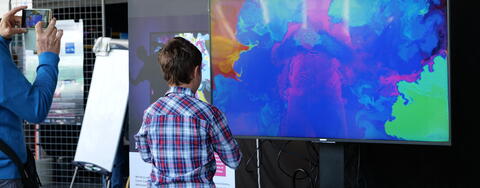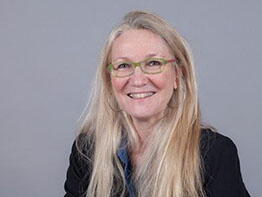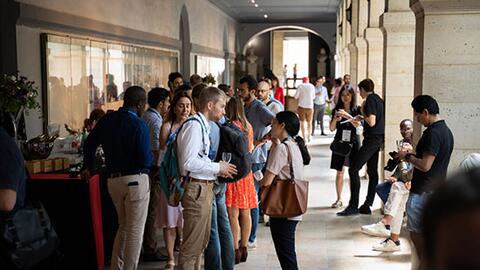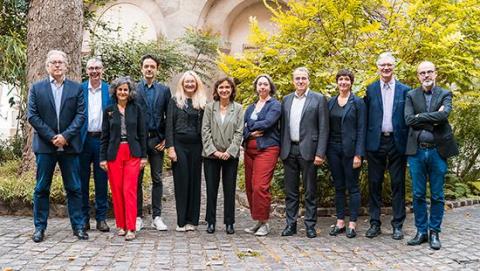
Elisabeth Angel-Perez: "We must recenter science and knowledge at the heart of society.”
Elisabeth Angel-Perez, Vice President for Research and Innovation, presents Sorbonne University’s main research priorities, along with its current projects and future challenges.
What are the main lines of research at Sorbonne University?
Sorbonne University has a strong core of disciplinary research, which is enriched by an interdisciplinary approach promoted by the university. With its three faculties and the transversalities that this creates, Sorbonne University knows how to illuminate new challenges that sit at the interface of various disciplines. Our institutes and initiatives promote this interdisciplinary research, bringing new issues to the forefront and enriching disciplinary research with methodologies borrowed from other disciplines.

The second primary research axis is the transferability of our research—powered by its inventiveness and creativity—that allow it to have a strong impact on society. This is what we are seeking to promote through the implementation of the University Innovation Pole (PUI), as well as through our promotion of research content in the arts and humanities, medicine, and science and engineering.
Finally, our third priority is the internationalization of research at the European level with, in particular, the active participation of Sorbonne University in the construction of the European university 4EU+. This engagement occurs in terms of both research and education. It also operates at the global level with the development of strategic partnerships that establish, for example, joint degrees and close collaboration between researchers. Sorbonne University also participates in various international research networks, such as the International Research Network.
Speaking of these IRNs, Sorbonne University has recently established a partnership with Canada.
We certainly have. Along with other French universities, we are signatories of a collaboration agreement in quantum sciences and technologies with various Canadian universities. Sorbonne University, the University of Paris Sciences et Lettres and the University of Paris Cité, along with the CNRS and INRIA, now make up a structure dedicated to quantum science called PCQT (the Paris Center for Quantum Technologies). In committing ourselves to this IRN, we are all sharing a common voice.
Can you tell us about the new doctoral missions that Sorbonne University has recently launched?
We have just released a series of doctoral missions called "expertise" or "mediation" that will enable doctoral candidates to use their skills to raise awareness among internal and external communities. Doctoral candidates will be equipped to raise awareness on issues such as environmental transition, sustainable development, the health of doctoral candidates and the development of Sorbonne University’s heritage repository, which includes collections of anatomy, minerals, paleontology, masks and more.
These missions will provide doctoral candidates with the opportunity to act as scientific ambassadors. It will furthermore enhance their teaching skills.
What are the major challenges ahead for your vice-presidency?
One of the major challenges is to recenter science and knowledge at the heart of society, and to fight against misinformation. One of our missions, as research-intensive universities, is to thwart the current of false information. Recently, with the latest global crises, we have seen how important it is to trust scientists. It is therefore essential that we succeed in ensuring that Sorbonne University scientists take an active part in all decisions, as is the case, for example, with the latest IPCC report written by Jean Jouzel. To meet the major societal challenges of today, scientists must assert themselves as resources of correct information. We must also develop scientific diplomacy to raise the awareness of decision-makers, but also to increase media coverage of the scientific voice.
At the same time, Sorbonne University is launching a major program of continuing education and "executive education" that will ensure the transfer of knowledge and expertise to various external actors in society.
What other projects are you currently working on?
I am working on a number of ongoing projects. For example, I would like to accord digital humanities a prominent place in the university landscape. All of Sorbonne University's faculties are involved in this field, and Sorbonne University holds one of the few chairs in digital humanities in France. I would like to be able to unite the many strengths we possess in this field to make it a more visible and structured pillar of our ecosystem.


